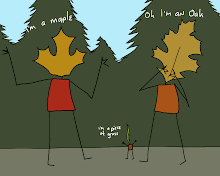Question: Corrido's have become a very popular form of music, has broken into top 10 charts, and is a large money maker for record labels, all the while, holding on to it's roots, and from what I understand from the article, is still solely(?) sung in Spanish. Why do you think that the corrido has been able to hold such a strong tie to its roots when other music/musicians (I'm thinking Shakira and others that had songs not in English) changed their ways to fit the surrounding culture?
Monday, April 20, 2009
Wald's "Mexican Ballads in the Modern Age," Critical Review
In his article, "Mexican Ballads in the Modern Age," Wald discusses the corrido (the Mexican ballad that the title refers to), and it's newer, more hard-edged version, the narcocorrido, which emerged in the early 1970s. Both have continuously acted as a sort of newspaper, delivering cultural information to their audiences. The narcocorrido has received some negative stigmas and has been related to ganster rap because of its tales of drug trafficking, gun fights, and general violence, but even with the shift in subject matter, the music itself has still remained relatively unchanged. Even though criticism has arisen surrounding the narco trend of the corrido, Wald wants to point out that corridos have still remained extremely popular due to the fact that people actually believe in the songs, and if the artists wanted to, as Enrique Franco is quoted, "they could make a revolution."
Subscribe to:
Post Comments (Atom)

No comments:
Post a Comment